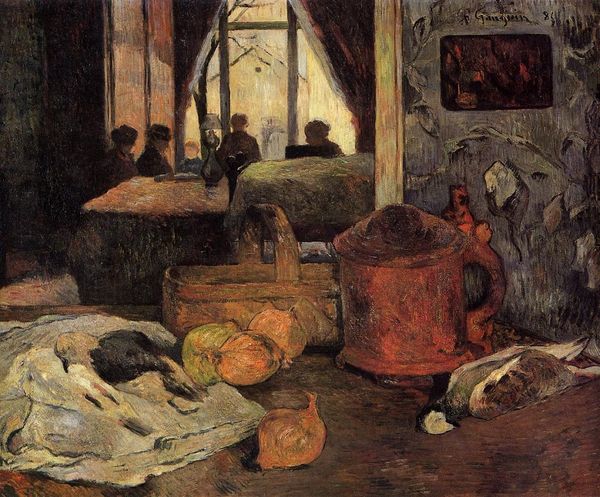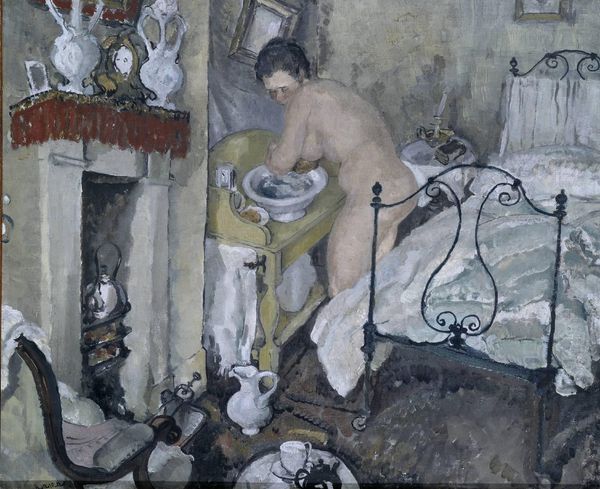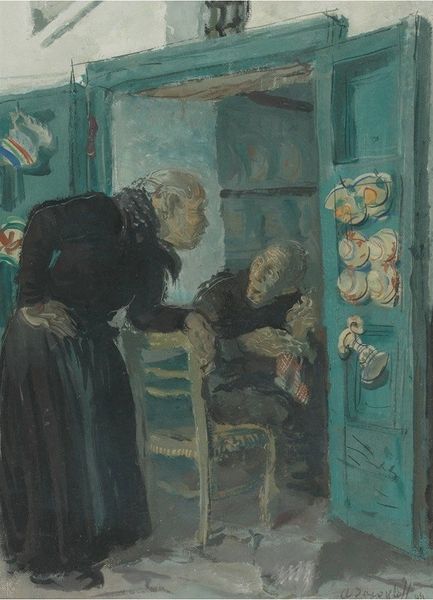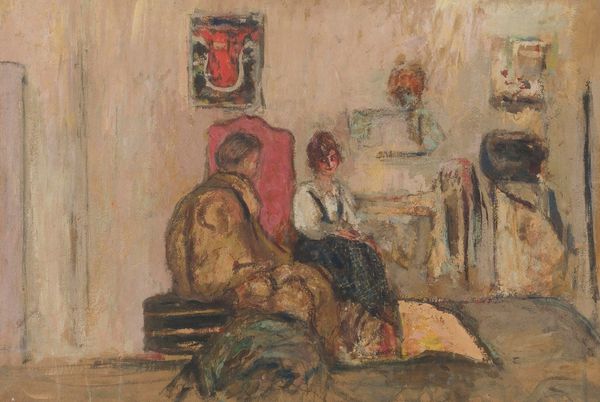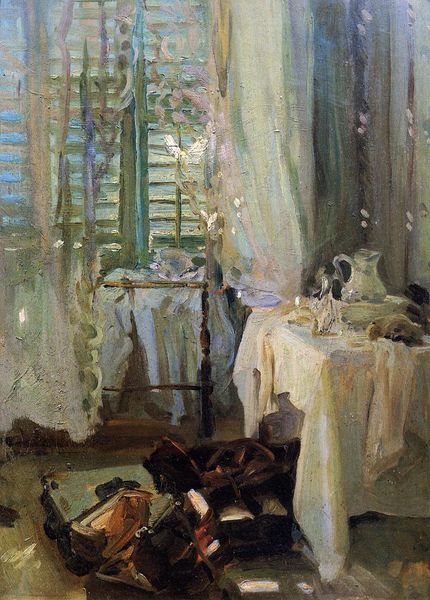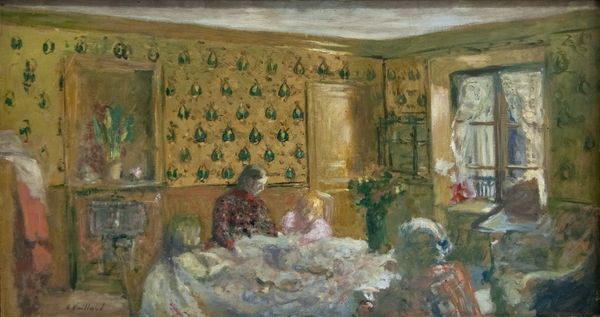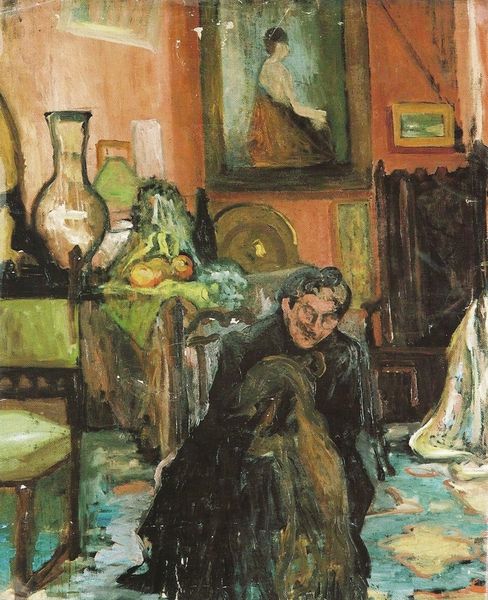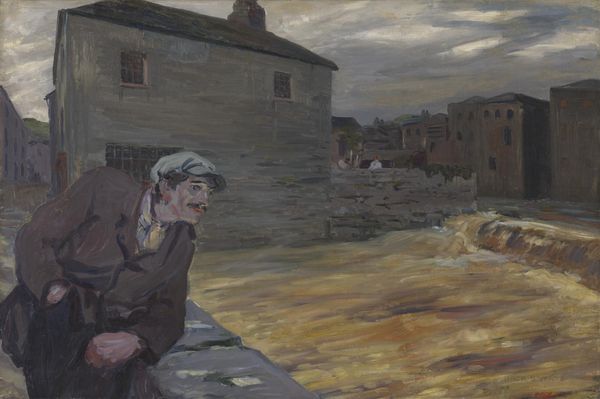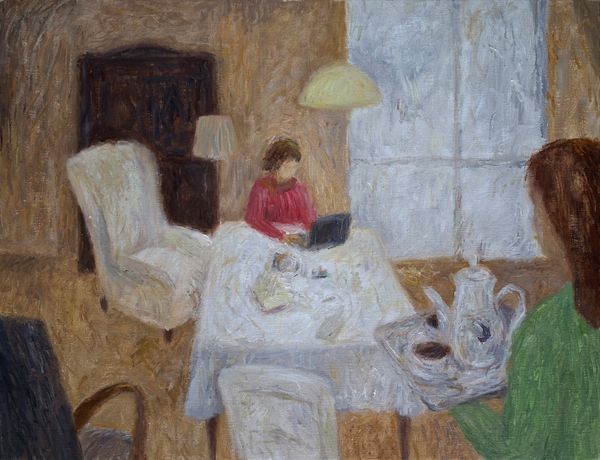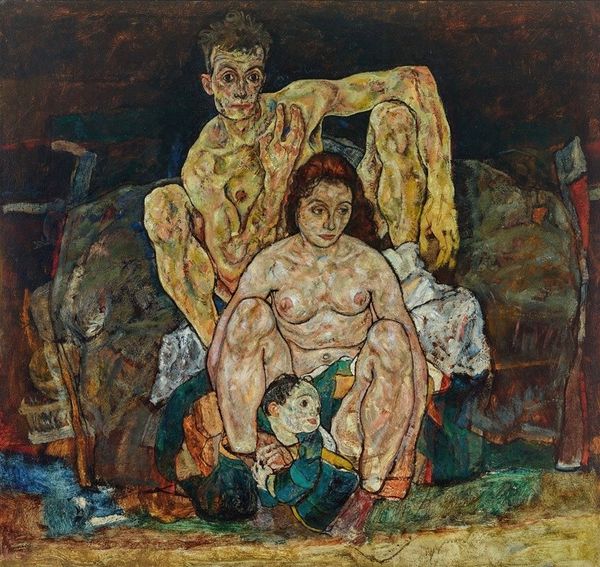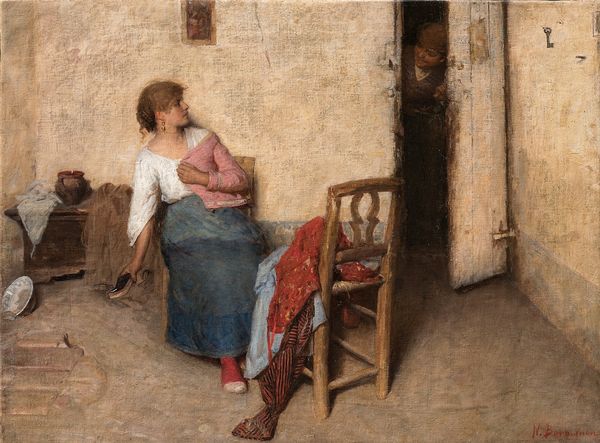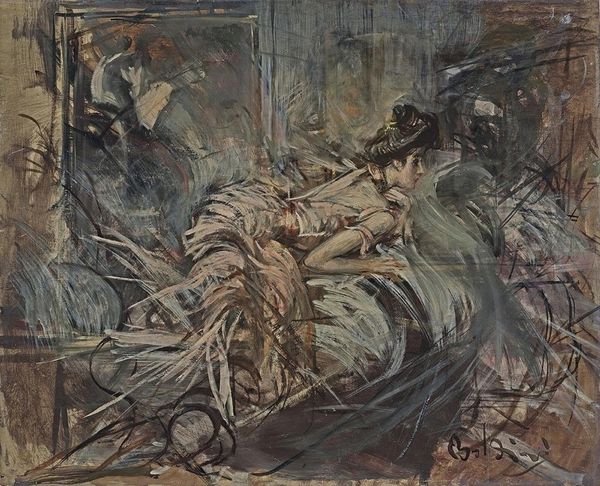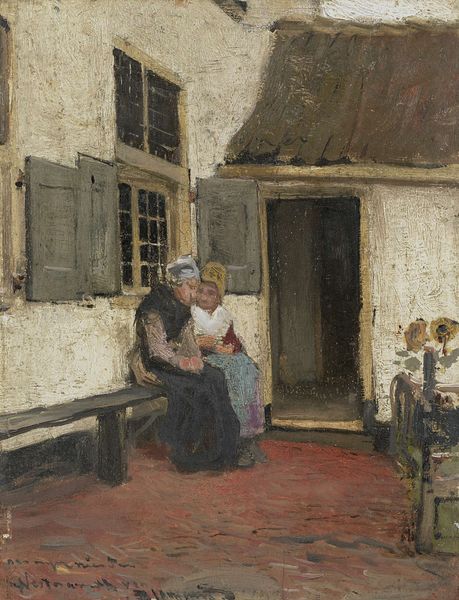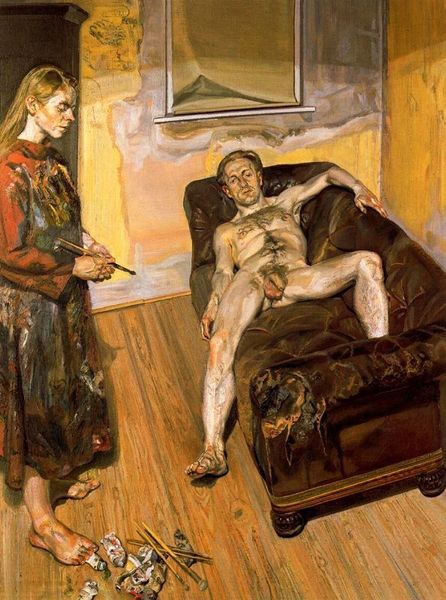
painting, oil-paint
#
portrait
#
figurative
#
painting
#
oil-paint
#
figuration
#
oil painting
#
painterly
#
symbolism
#
genre-painting
#
realism
Copyright: Public Domain: Artvee
Editor: Here we have Jacek Malczewski’s 1910 oil painting, “Dish Washing. Wielgie.” It’s a somewhat strange, genre scene that evokes a dreamlike or even surreal mood, featuring everyday actions amidst classical figures and an oddly placed horse. How do you interpret this work? Curator: It is an unsettling yet intriguing piece! Looking at “Dish Washing,” I'm drawn to how Malczewski uses this mundane domestic scene to explore the societal constraints and roles imposed on women in early 20th-century Poland. Note the figure at the door performing the labor of washing dishes juxtaposed with reclining figures who appear passive. What could they symbolize, do you think? Editor: Maybe a resistance to labor, a sense of dreamers freed from toil? Curator: Precisely. Consider Malczewski’s involvement in the Young Poland movement. He infuses realism with symbolic undertones, commenting perhaps on women's forced labor and the struggle for liberation and autonomy. This might also reflect anxieties around modernization conflicting with romanticized views of Polish identity and rural life. Editor: So, the painting is almost like a quiet form of social commentary? Curator: I think that is fair. Malczewski layers traditional roles against emergent aspirations. And even questions the viewer to consider such imposed tensions. The symbolic context offers a crucial lens through which we can understand this scene not merely as ‘dish washing’ but as an articulation of early twentieth-century feminist consciousness and perhaps class conflicts. What do you make of the composition and symbolism of the horse looking on at a distance? Editor: It all now hints at a yearning for escape from routine. I see a much deeper struggle illustrated here now. Thanks! Curator: Yes, it encourages us to look at ordinary moments and reveal deeper meanings beneath the surface, doesn’t it?
Comments
No comments
Be the first to comment and join the conversation on the ultimate creative platform.
